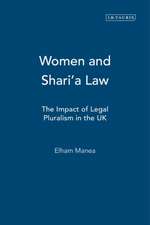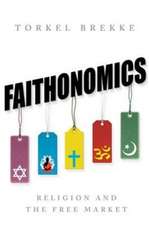Vinegar Into Honey: Seven Steps to Understanding and Transforming Anger, Agression, & Violence
Autor Ron Leiferen Limba Engleză Paperback – 29 feb 2008
Preț: 84.32 lei
Nou
Puncte Express: 126
Preț estimativ în valută:
16.13€ • 16.89$ • 13.43£
16.13€ • 16.89$ • 13.43£
Carte disponibilă
Livrare economică 08-22 martie
Preluare comenzi: 021 569.72.76
Specificații
ISBN-13: 9781559392938
ISBN-10: 1559392932
Pagini: 143
Dimensiuni: 142 x 215 x 11 mm
Greutate: 0.19 kg
Editura: Snow Lion Publications
ISBN-10: 1559392932
Pagini: 143
Dimensiuni: 142 x 215 x 11 mm
Greutate: 0.19 kg
Editura: Snow Lion Publications
Notă biografică
Ron Leifer, MD, is a psychiatrist with more than forty-five years' experience in the practice of private psychotherapy. He trained in psychiatry under Thomas Szasz and became a Buddhist practitioner in 1980 when he became a student of Khenpo Karthar Rinpoche. He founded the Ithaca Dharma Society and teaches meditation. He is the author of In the Name of Mental Health and The Happiness Project and more than fifty articles in professional journals on psychiatry and the interface of Buddhism and psychotherapy. He lives in Ithaca, New York.
Recenzii
"Easily one of the best books on understanding and transforming anger, aggression, and violence that I have ever read."—Albert Ellis, founder of Rational Emotive Behavior Therapy and author of A Guide to Rational Living
"Vinegar into Honey is well grounded in wisdom Dharma and fertilized by western psychology, clearly showing in seven steps how to understand and work with our feelings of anger."—Lama Surya Das, author of Awakening the Buddha Within
"Dr. Leifer's thoughtful fusion of Western and Buddhist insights provides us with a lucid analysis of the psychodynamics of anger and a practical workbook for dealing with aggression in our daily lives."—Stephen Batchelor, author of Buddhism Without Beliefs
"[Leifer] describes the process of transforming suffering into equanimity and compassion—central in Buddhist psychology and practice—in a lucid style using case studies of people just like us...a very practical manual."—Mandala
"Violence has been with us throughout human history but it reached new heights in the twentieth century with wars, ethnic and religious brutality, and the use of weapons of mass destruction. It is lamentable that more has not been done to stem the tide of aggression. [In Ron Leifer's] seven-step guide to understanding and transforming anger.... He has some cogent things to say about...the ways in which our desires our aversion and our self-interest fuel violence; the important role of patience in coping with suffering; and the challenge of relaxing and remaining serene when things are going badly for us and we are stressed out."—Spirituality and Practice
"This is a very practical book on how to transform our anger and negative emotions . . . . Leifer provides detailed instructions for working with our negative mental states and each of the steps he proposed reflects views and methods drawn from Buddhist tradition."—Eastern Horizon
"Leifer's seven-step process is a practical one from developing awareness of the many faces of anger to opening one's heart to both the goodness and pain in life.... I was struck by his reflections . . . particularly helpful."—Tricycle
"Vinegar into Honey is well grounded in wisdom Dharma and fertilized by western psychology, clearly showing in seven steps how to understand and work with our feelings of anger."—Lama Surya Das, author of Awakening the Buddha Within
"Dr. Leifer's thoughtful fusion of Western and Buddhist insights provides us with a lucid analysis of the psychodynamics of anger and a practical workbook for dealing with aggression in our daily lives."—Stephen Batchelor, author of Buddhism Without Beliefs
"[Leifer] describes the process of transforming suffering into equanimity and compassion—central in Buddhist psychology and practice—in a lucid style using case studies of people just like us...a very practical manual."—Mandala
"Violence has been with us throughout human history but it reached new heights in the twentieth century with wars, ethnic and religious brutality, and the use of weapons of mass destruction. It is lamentable that more has not been done to stem the tide of aggression. [In Ron Leifer's] seven-step guide to understanding and transforming anger.... He has some cogent things to say about...the ways in which our desires our aversion and our self-interest fuel violence; the important role of patience in coping with suffering; and the challenge of relaxing and remaining serene when things are going badly for us and we are stressed out."—Spirituality and Practice
"This is a very practical book on how to transform our anger and negative emotions . . . . Leifer provides detailed instructions for working with our negative mental states and each of the steps he proposed reflects views and methods drawn from Buddhist tradition."—Eastern Horizon
"Leifer's seven-step process is a practical one from developing awareness of the many faces of anger to opening one's heart to both the goodness and pain in life.... I was struck by his reflections . . . particularly helpful."—Tricycle















